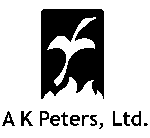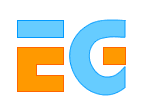T1Geometric Modeling Based on Triangle Meshes

- Organizer
- Mario Botsch, ETH Zurich
Mark Pauly, ETH Zurich
- Speakers
- Stephan Bischoff, RWTH Aachen University of Technology
Mario Botsch, ETH Zurich
Leif Kobbelt, RWTH Aachen University of Technology
Mark Pauly, ETH Zurich
Christian Rössl, INRIA Sophia-Antipolis
- Abstract
- This tutorial is designed to cover the entire geometry processing pipeline based on
triangle meshes. Speakers will present the latest concepts for mesh generation and
mesh repair, for geometry and topology optimizations like mesh smoothing, decimation,
and remeshing, for parametrization, segmentation, and shape editing. In addition to
describing and discussing the related algorithms, we will also give valuable
implementation hints and provide source code for most of the covered topics.
- Summary
- In the last years triangle meshes have become increasingly popular and are nowadays
intensively used in many different areas of computer graphics and geometry processing.
In classical CAGD irregular triangle meshes developed into a valuable alternative to
traditional spline surfaces, since their conceptual simplicity allows for more flexible and
highly efficient processing. Moreover, the consequent use of triangle meshes as surface
representation avoids error-prone conversions, e.g., from CAD surfaces to mesh-based
input data of numerical simulations.
Besides classical geometric modeling, other major areas frequently employing triangle
meshes are computer games and movie production. In this context geometric
models are often acquired by 3D scanning techniques and also have to undergo postprocessing
and shape optimization techniques before being actually used in production.
This course discusses the whole geometry processing pipeline based on triangle
meshes, starting from mesh generation and the removal of geometric and topological
degeneracies. We introduce quality measures for triangle meshes with respect
to geometric smoothness and element shape followed by optimization techniques
for both criteria, namely mesh smoothing and isotropic/anisotropic re-meshing. We
discuss parametrization and segmentation, and finally present free-form and multiresolution
shape editing techniques, complemented by a session on efficient numerical
solution of the resulting linear systems.
For each topic we present the underlying basic concepts and the current state-of-theart
techniques. Software demonstrations will give the audience a better understanding
of the discussed algorithms. Demo applications will be available from the course materials
or from our website, such that the participants can try the effects of different
parameters on their laptops, either during the talks or in the breaks afterwards. Moreover,
we provide valuable implementation hints as well as fully working source code
based on our popular open source mesh library OpenMesh, which enables the participants
to re-implement the discussed algorithms and reproduce the results published
in the corresponding papers.
- Speakers' Background
-
- Stephan Bischoff
- graduated in 1999 with a masters in computer science from the
University of Karlsruhe, Germany. He then worked at the graphics group of the Max-
Planck-Institute for Computer Science in Saarbrucken, Germany. In 2001 he joined the
Computer Graphics Group at the Aachen University of Technology, Germany, where
he is working as a research associate with Prof. Dr. Leif Kobbelt and is currently pursuing
his PhD. He is an experienced speaker and presented courses at Eurographics
and Shape Modeling International. His research interests focus on freeform shape representations
for efficient geometry processing, topology control techniques for level-set
surfaces, reconstruction of medical data sets and the restoration and healing of CAD
models.
- Mario Botsch
- is a post-doctoral research associate at the Computer Graphics Laboratory
of ETH Zurich. He received his MS in Mathematics and Computer Science
from the University of Erlangen, Germany, in 1999. From 1999 to 2000 he worked as
research associate at the Max-Planck Institute for Computer Science in Saarbrucken,
Germany. From 2001 to 2005 he worked as research associate and PhD candidate with
Prof. Dr. Leif Kobbelt at the RWTH Aachen University of Technology, from where he
received his PhD in 2005. Dr. Botsch has served on the program committees of Solid
and Physical Modeling and the Symposium on Point-Based Graphics, of which he is
paper co-chair this year. He is an experienced speaker and presented courses at Eurographics
and Shape Modeling International. His research interests include geometry
processing in general, and mesh generation, mesh optimization, and multiresolution
shape editing in particular.
- Leif Kobbelt
- is a full Professor of Computer Science and the Head of the Computer
Graphics group at the RWTH Aachen University of Technology, Germany. His
research interests include all areas of Computer Graphics and Geometry Processing
with a focus on multiresolution and freeform modeling, 3D model optimization, as well
as the efficient handling of polygonal mesh data. He was a senior researcher at the
Max-Planck Institute for Computer Science in Saarbrucken, Germany, from 1999 to
2000 after he received his Habilitation degree from the University of Erlangen, where
he worked from 1996 to 1999. In 1995/96 he spent a post-doc year at the University
of Wisconsin, Madison. He received his PhD and MS degrees from the University
of Karlsruhe, Germany, in 1994 and 1992, respectively. Dr. Kobbelts research work
during the last years resulted in numerous publications in top scientific journals and
international conferences. He is invited regularly to give keynote presentations and
tutorial lectures. For his contributions he received several scientific awards. He has
ongoing collaborations with colleagues in Europe, North America, and Asia, and frequently
serves on international program committees. He organized and co-chaired
several workshops and conferences.
- Mark Pauly
- is an assistant professor at the computer science department of ETH
Zurich, Switzerland. From August 2003 to March 2005 he was a postdoctoral scholar
at Stanford University, where he also held a position as visiting assistant professor
during the summer of 2005. He received his Ph.D. degree in 2003 from ETH Zurich
and his M.S. degree in computer science in 1999 from the Technical University of
Kaiserslautern, Germany. Dr. Pauly has served on various program committees including
ACM SIGGRAPH, Eurographics, and the Symposium on Geometry Processing,
and has co-chaired the Symposium on Point-Based Graphics. He is an experienced
speaker and has previously presented courses at SIGGRAPH and Eurographics. His
research interests include geometry processing, multi-scale shape modeling and analysis,
physics-based animation, and computational geometry.
- Christian Rössl
- is a postdoctoral associate with the Institut National de Recherche
en Informatique et en Automatique (INRIA) in Sophia-Antipolis, France. He received
his MS in Computer Science from the University of Erlangen, Germany, in 1999. From
1999 to 2005 he worked as a research associate and PhD candidate with Prof. Dr. Hans-
Peter Seidel at the Computer Graphics department of the Max-Planck Institute for
Computer Science in Saarbrucken, Germany, from where he received his PhD in 2005.
He is an experienced speaker and presented a course at Eurographics. His research
interests focus on geometry processing and scientific visualization, including shape
modeling and analysis, mesh generation, surface parametrization and spline models.
If you have any comments regarding this webpage please send a message to the webmaster.
























